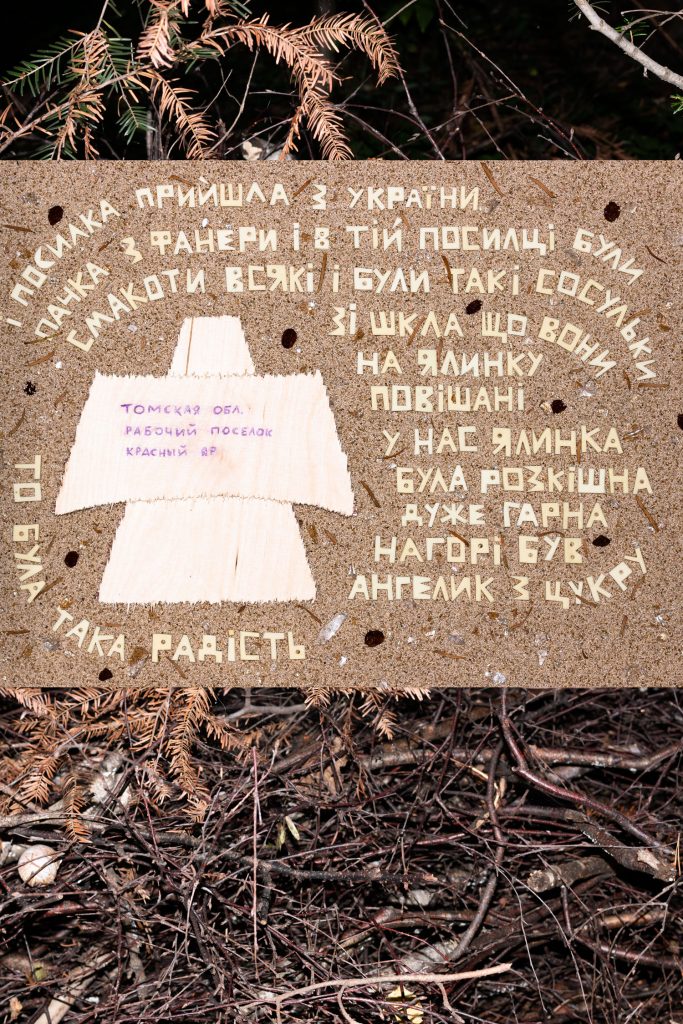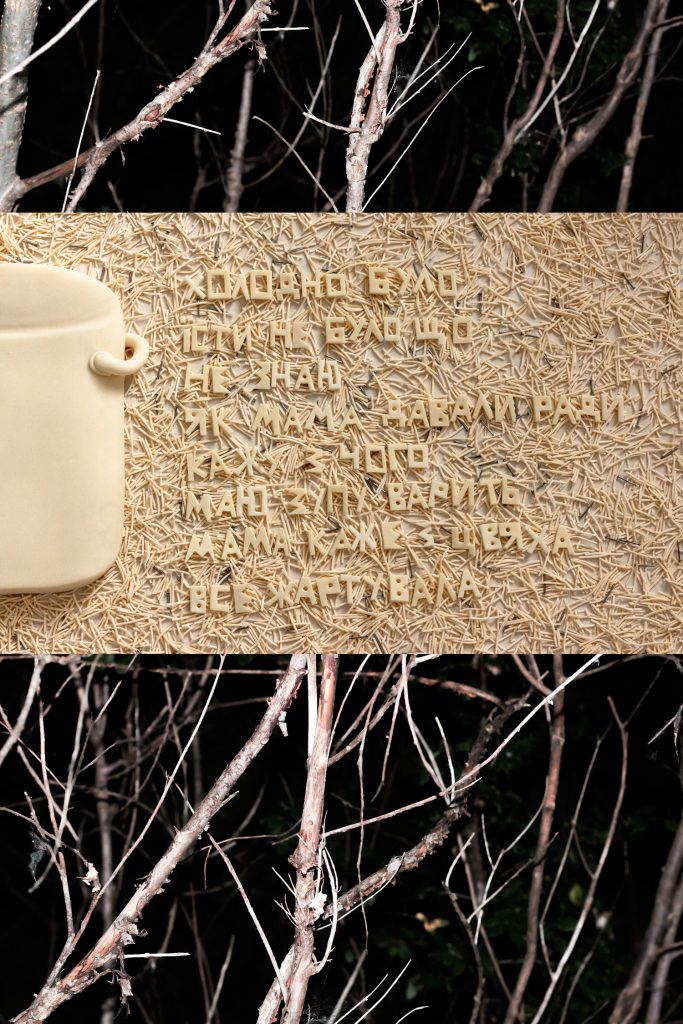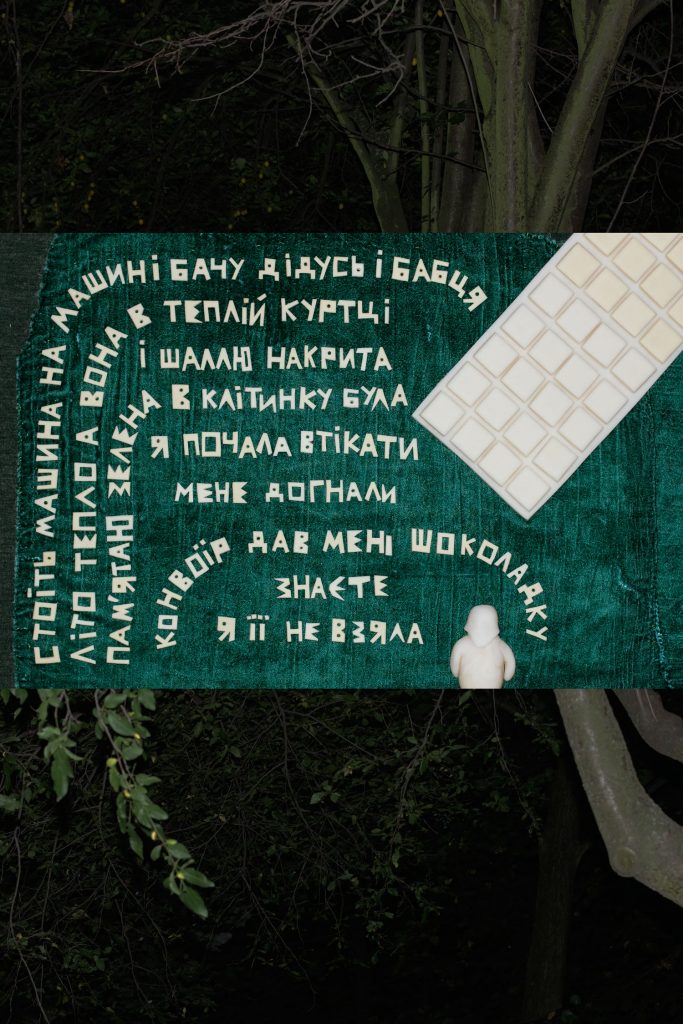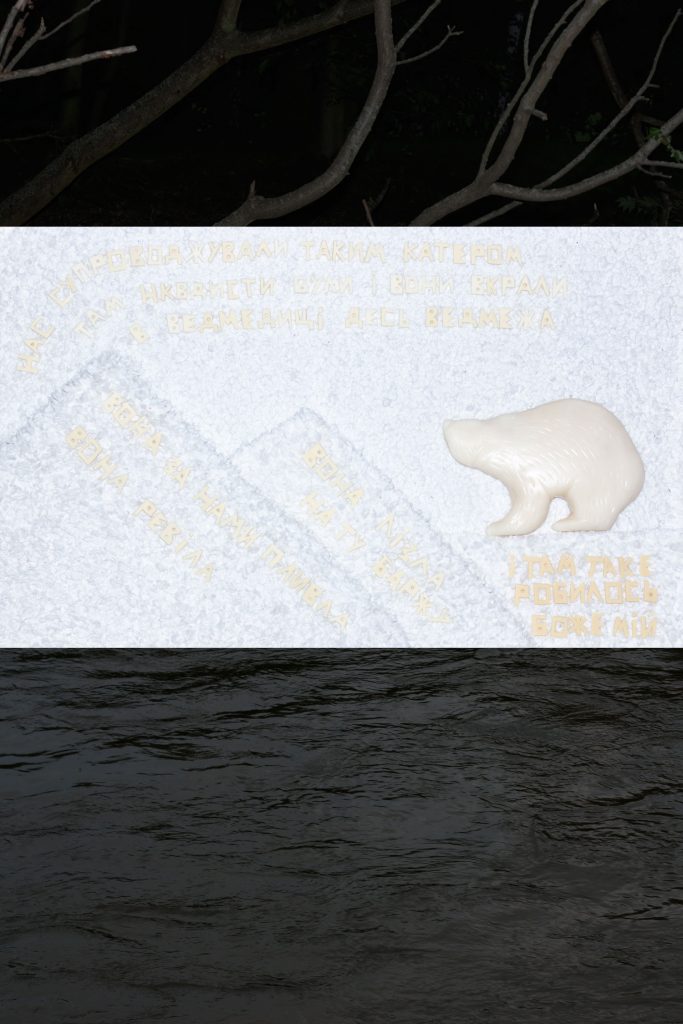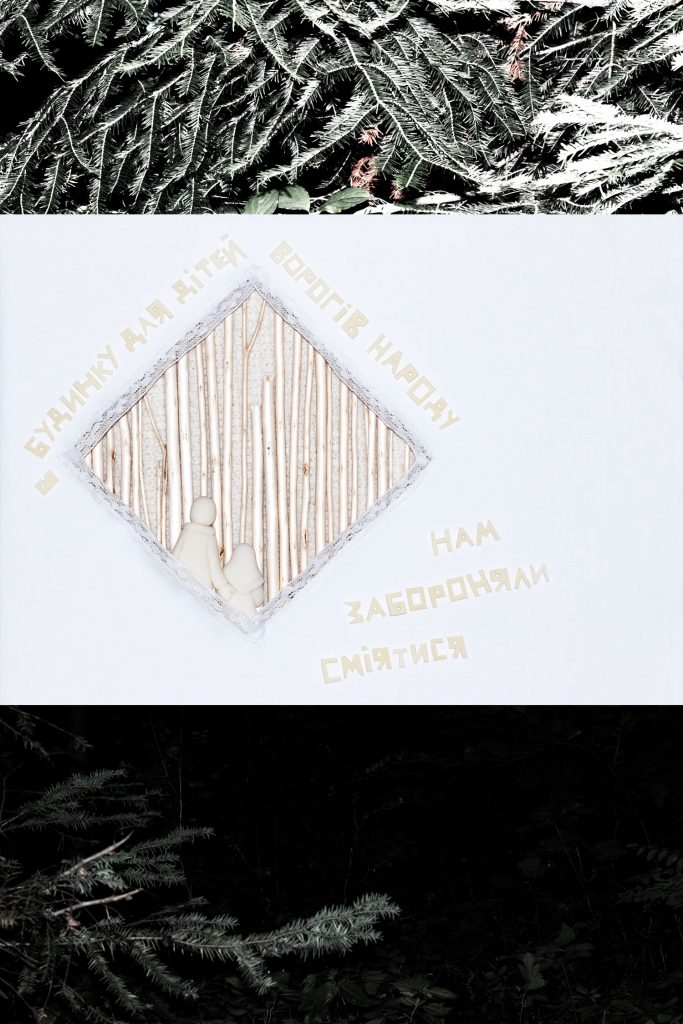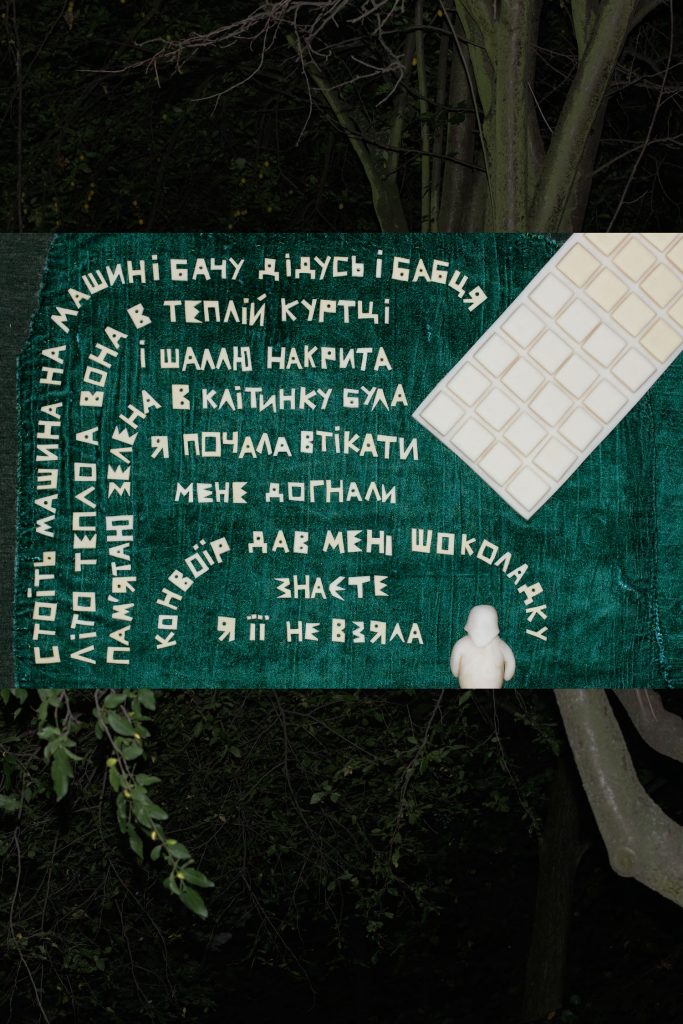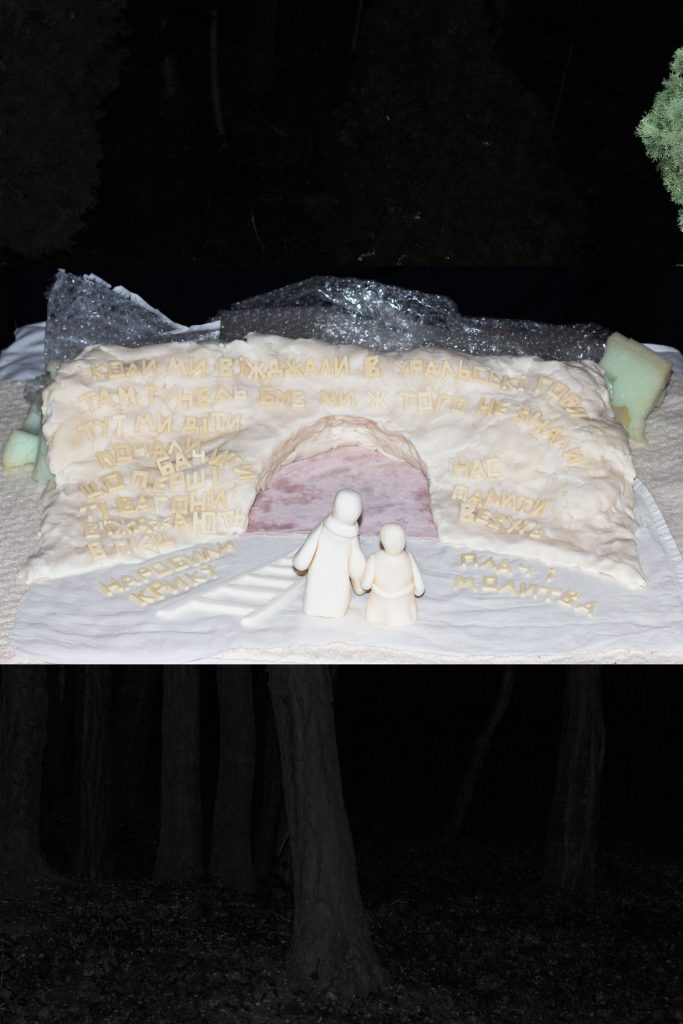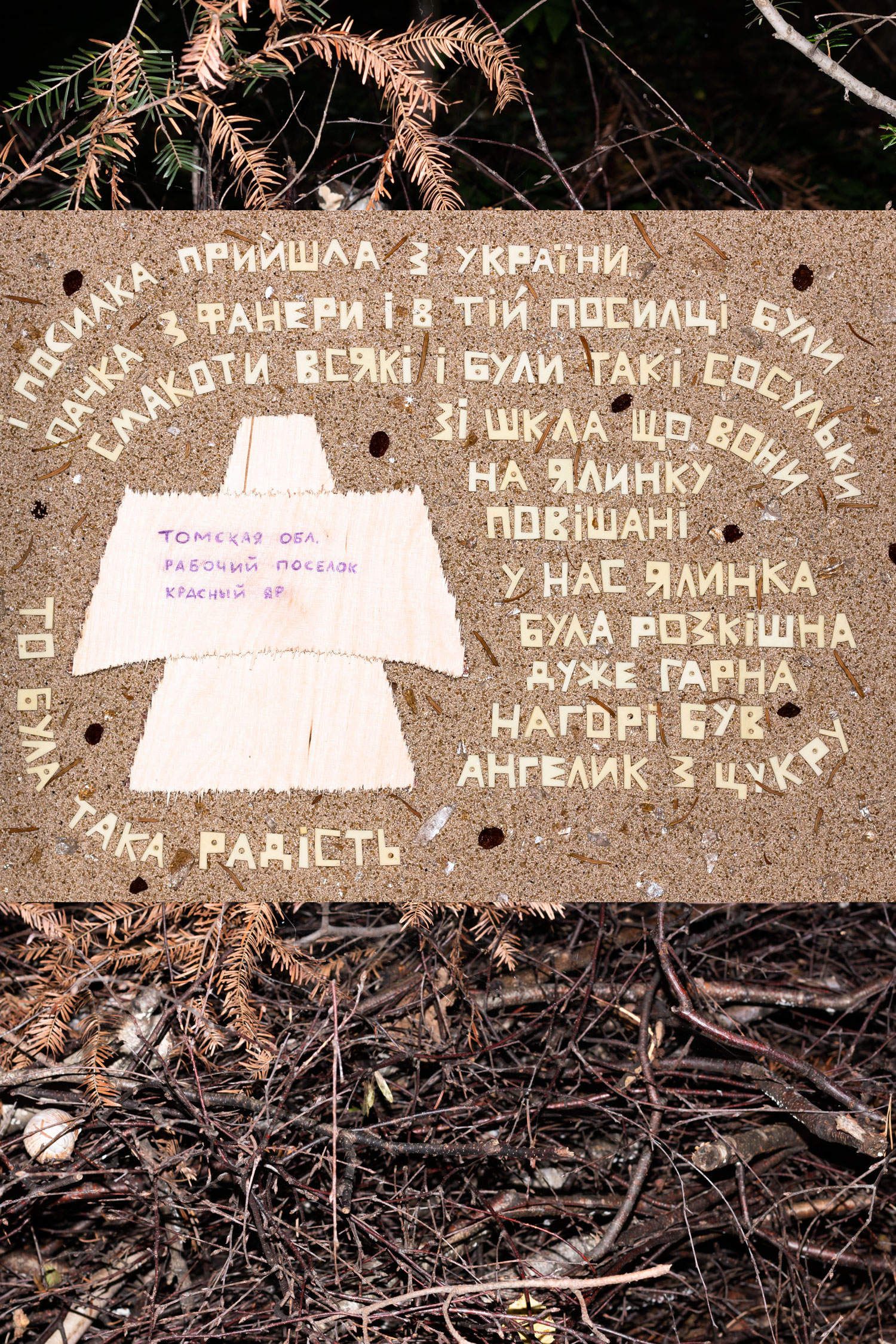Photographic triptychs, diasec.
This project is built upon memoirs by people who as children had experienced deportations and life in exile. It explores the influence of totalitarian regimes upon human lives when childhood, which should have been a safe and happy time, becomes full of danger, hunger, separation from familiar places, and the deaths of close relatives.
Between 1944 and 1953, the Soviet regime deported more than 210 thousand people from Western Ukraine to Siberia, Soviet Far East, and Middle Asia. Some of them were forced to live in exile as long as till the early 1960s, long after Stalin’s death. For many years their experiences were never made public, they only were able to speak openly after the Soviet state fell apart.
We have selected from the archive of recordings of their stories those episodes that reminded us of grim fairy tales with their gloomy aesthetics and feelings of loss and danger. And yet these are the direct quotes of real people talking about their life. We were aiming to show not only the darkest times of their lives but also occasional bright moments among all that darkness. All the good and evil moments in life that had replaced fairy tales for those children.
We were reconstructing these episodes in sugar mass and textiles, photographing the installations, and overlaying them on photos of the dark woods lit with a bright flash of light. Sweet sugar mass is a very direct symbol of a ‘normal’ childhood and yet it is flexible enough to serve as material for non-childish stories.
Images were produced for the ‘Lost childhood’ project realised by Territory of Terror museum (Lviv, Ukraine) and Post Bellum (Czechia) with EU support via the House of Europe programme.
